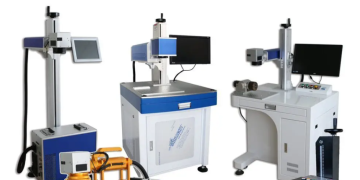In the UK, anyone over the age of 16 who applies for a job, voluntary post or placement for educational qualifications, is likely to be asked to provide a background check on any criminal record they might have. This practice is becoming ever more widespread, as employers and public institutions look to protect themselves from litigation, as well as the public and their staff from exposure to criminal behaviour. Whereas criminal record bureau (CRB) checks were the exception rather than the rule, this situation is somewhat reversed in the 21st century. How these checks are carried out has also been streamlined in the last few years.
Updated Checking Process
Since 1 December 2012, criminal record checks have been carried out in England and Wales by the Disclosure and Barring Service (DBS). This is a function of the UK’s Home Office, and was formed as part of the Protection of Freedoms Act 2012. As such, the DBS replaced both the Criminal Records Bureau (CRB) and the Independent Safeguarding Authority (ISA). The DBS has strict standards for employers as well as applicants, particularly with regard to the provisions of the Rehabilitation of Offenders Act (ROA) 1974. This makes it illegal in most cases to discriminate against anyone with a spent conviction on their record.
Spent convictions are not revealed by the Basic DBS check; these only disclose current convictions, where a fine or other sanction is still in place. Basic checks are carried out at the request of individuals applying for posts, usually as part of the recruitment process. Employers are not obliged to give reasons for wanting an applicant to provide a basic check; indeed, there are no legal criteria governing who can ask for one.
Basic DBS checks are usually carried out for roles which present no direct danger to the public, and where there is little likelihood that an organisation will open itself up to large scale fraudulent activity. Employers may ask for basic checks as a “belt and braces” approach to recruiting, for example where staff will be working with others on sites in various parts of the country.
Standard Checks and Above
Basic checks are the only DBS disclosures which do not reveal spent convictions. Above this level are Standard and Enhanced DBS checks; both of these show all (spent and unspent) convictions, plus cautions, reprimands and final warnings. Enhanced checks show these, plus any additional information police services may have regarding a conviction, if they deem it relevant. The highest level enhanced checks can also request sight of children’s and adult’s barred list searches, which show any individual convicted of particular crimes, such as those against children.
Standard level checks are required when applying for work as a solicitor, barrister or accountant. This is to give an employer confidence that the applicant has no background of fraudulent activity or theft. Enhanced checks are carried out automatically for jobs (paid or unpaid) in teaching, social and support work. They also apply if a role entails working in a particular environment, such as a school, more than once a week, regardless of what the actual job itself. Taxi and private hire drivers will also need an enhanced DBS check before being allowed a licence.
Standard and enhanced DBS checks cannot be requested by individual applicants. As they have to adhere to the ROA, only registered bodies can apply for them. If an employer makes 100 or more such requests in a calendar year, they can apply to be a registered organisation, and therefore speed up the DBS checking process by forwarding names themselves. Smaller employers usually make use of an umbrella body such as a checking service, which are easily contactable online.
To comply with regulations, any such business must tell the DBS how they intend to attain the annual 100 check level, what type of organisation they are, who is their lead counter-signatory and other proposed counter-signatories, as well as what jobs will make up their requests. Only certain positions satisfy these conditions, known as reserved occupations. These are jobs in high risk professions or environments, as described here.
Not only is it illegal for an employer to refuse a job against ROA conditions, the registered body can only ask for standard and enhanced DBS checks for specifically listed occupations. Any breach of these conditions will see the DBS registered body‘s registration suspended and possibly cancelled altogether.



























































